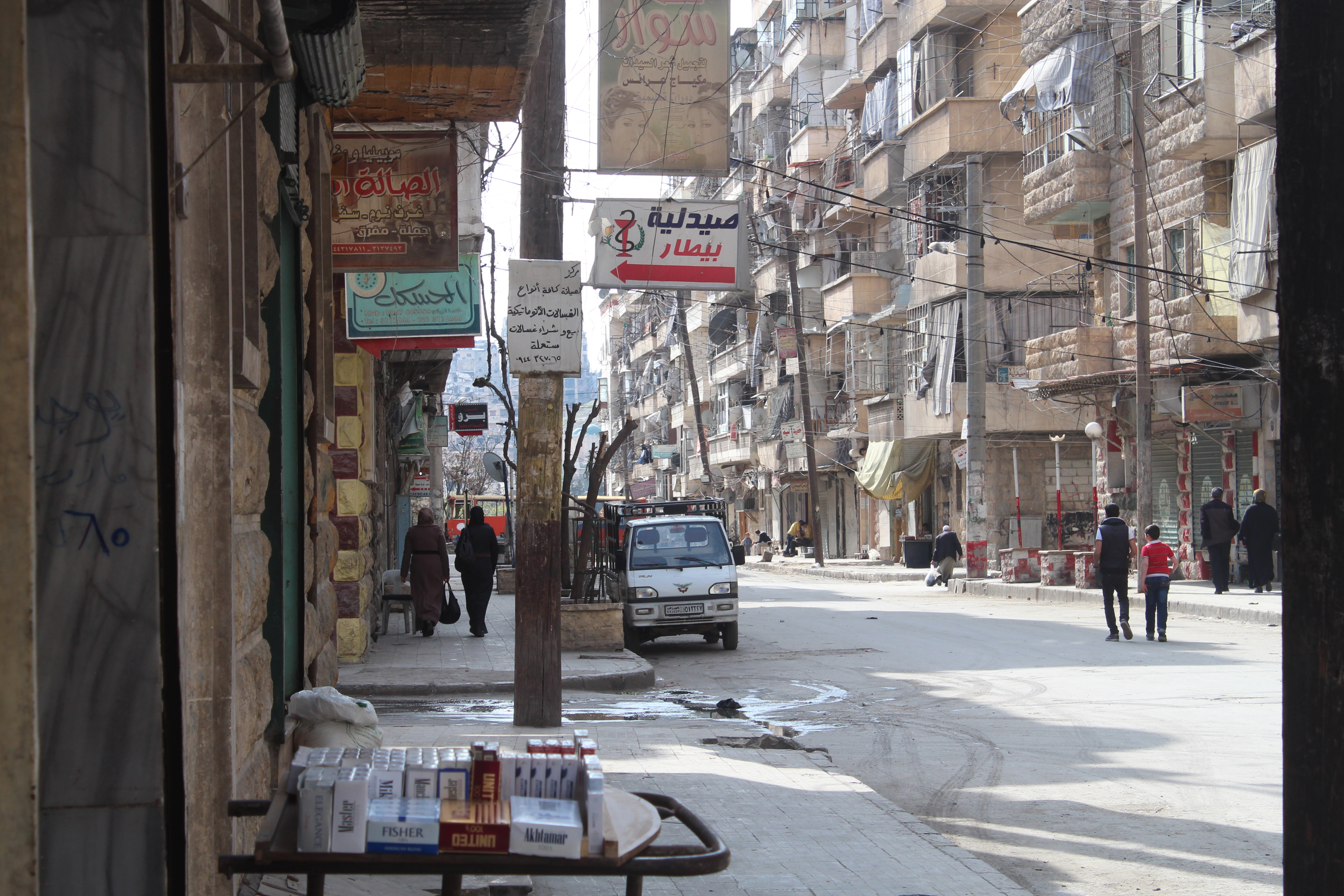The Power of a Costly Document

Prison is a humiliating place. It cuts a person’s life short. Every single night, I dreamed that my son would be released.
Ahmad was gone for a year and eight months. He was arrested by the criminal investigations department in Idlib on February 25, 2013, and then transferred to Adra prison in Damascus.
Prisoners were treated well in Adra. Ahmad was no longer tortured. He was able to call us once a week, and I was allowed to visit him every two months to bring him food and clothes.
I hired a lawyer to secure Ahmad’s release, but all he seemed to do was take my money and feed me lies. So every time I visited my son in Damascus, I personally submitted an appeal for his release to a judge.
Finally, on August 23, 2014, Ahmad was granted bail of 25,000 Syrian pounds. But when I went to get him out, I was told he had been turned over to the military police.

Ahmad had turned 18 while in prison, making him eligible for military service. However, he had not been issued with a national service card, so the military police sent off him to a “mediating office”. These offices are military departments supposedly responsible for solving soldiers’ problems, but the truth is only those able to pay money can get anything resolved.
I went to the office, and explained that Ahmad had been my family’s sole provider since his father died and was therefore entitled to defer conscription. But they refused to release him and I was forced to bargain with them to secure his release. I was willing to pay any amount of money they asked. I just wanted Ahmad to see the light of day again.
I went to the mediating office with Abu Khalid, a relative who’d agreed to do the negotiating for me. We met a man called Aql who seemed to be in his fifties and had a thick moustache and a sour expression on his face. He spoke with an accent distinctive of the coastal region, the stronghold of President Bashar al-Assad.
When the negotiations were over, Aql turned to me and said, “I helped your son because he’s an orphan.” He gave me a document stating that Ahmed’s military recruitment had been deferred as he’d just been released from prison. That paper cost me 100,000 pounds.
I decided we should return to Idlib together with a group of passengers heading for Foua, a town loyal to the regime whose residents enjoyed certain privileges. I felt we might be safer doing that.
As we left Damascus and approached one of the last government checkpoints, my heart started racing. We had reached al-Qatifa, a checkpoint we called the “crossing of death” in Idlib because so many of our young men had disappeared there.
The soldier on guard at al-Qatifa asked for our IDs, and the driver handed them over, mentioning that he was from Foua. Much to my relief the soldier immediately returned the IDs and said, “Go. God be with you.”
We continued on our journey, passing through many other checkpoints, and every time we did so, I felt terrified all over again.
Eventually we reached Ariha, a small town near Idlib with another notorious checkpoint. We were stopped, and this time the soldier looked at our IDs. When he checked Ahmad’s ID he asked for his military service card, so Ahmad gave him the dubious permit we’d obtained.
We waited for 15 long minutes in utter fear until the soldier came back and returned the document to Ahmad, saying, “It’s legitimate.”
At that moment, I wished I had trusted in the power of that document from the start. Had I done so I would have spared myself the fear I felt throughout the journey.
We finally reached Idlib at nine in the evening. Ahmad could hardly wait to be reunited with his siblings, relatives, and friends. What he had not anticipated, however, was that he’d receive a hostile welcome from some of them.
Ahmad was opposed to the Assad government, and was shocked to find that many of his friends regarded him as a terrorist. He was also stunned to find that many men had taken up arms in support of the government, and were roaming the streets as shabiha [pro-regime paramilitaries], looting and threatening the lives of the vulnerable.
He left Idlib, realising he could only return if it was liberated.
He wanted to live in dignity, and he couldn’t do that as long as Idlib was ruled by the kind of men who had mistreated him in detention.
Thankfully, the day came when Idlib was liberated [in March 2015], and Ahmad returned to the city, where he now lives a free man.
Manal al-Hassan is the pseudonym of a Damascus Bureau contributor living in Idlib, Syria.
